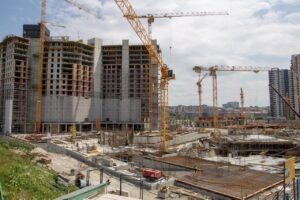When it’s the fall semester of a new university year, part of the excitement for students will be finding an apartment to rent, often for the very first time. However, there are several things to be aware of in a new apartment, including whether it meets all the requisite health and safety standards.
Ignoring potential hazards when applying for an apartment could lead to dangerous accidents and property damage down the road. To ensure your safety in your home away from home, you need to be aware of your responsibilities and those of your landlord.
If an accident occurs on the property because of your landlord’s negligence, you may have a claim against them. Many tenants, especially young ones, might be hesitant to move forward with a claim or lawsuit for fear of retaliation from the landlord.
DO NOT be intimidated: landlords can be held liable for negligence. A landlord’s failure to address issues on the rental property can cause physical harm or financial losses, and you need to be aware of your rights.
Basic Safety Tips
While students are often busy and may suffer through problems at home in favor of focusing on their studies, there are some issues they just can’t ignore. If you’re renting an apartment in Boston, keep the following safety tips in mind:
- Apartments in Boston are subject to City of Boston Rental Delivery Standards that landlords must meet before you move into an apartment. Your lease should include an Apartment Condition Statement that you must complete within two weeks of moving into the apartment.
- If you notice any of the conditions listed in the Rental Delivery Standards are unfulfilled upon moving in, such as lack of sanitation or a lack of smoke detectors, you should note it in the Apartment Condition Statement, take pictures, and contact your landlord immediately. If you receive no response and no action is taken, you can report it to the City of Boston by calling 3-1-1.
- Know what you’re responsible for. If you cause property damage, check what is covered by the lease and what you’re responsible for replacing. If you uncover a potential hazard or create one unintentionally, contact the landlord immediately to address the issue.
- Trust your instincts. If you sense something is wrong, it probably is. It’s better to call for assistance or check with the landlord than to ignore a suspicion that something in your home is not functioning correctly.
- Always use common sense. Keep your doors and windows closed and locked when you’re not home. If you notice things that may cause injuries or are potentially hazardous to health, such as broken stairs, missing railings, or structural defects that could cause accidents or fires, contact your landlord immediately. If your landlord fails to respond, they can be held liable for negligence if an accident occurs.
Negligence and Liability
Proving negligence can be complex. If you’re in a situation where you’re considering filing a claim against your landlord, you should contact the Boston premises liability lawyers at Jason Stone Injury Lawyers, to help you navigate the process.
Some cases may be straightforward, such as your landlord steadfastly ignoring calls and emails about a hazard that results in harm, but other injury and property damage claims can be harder to prove.
In addition, landlords often become experts in avoiding liability over their years of owning and renting out property. The onus is on you to prove landlord negligence. You could have a winning personal injury claim if you can provide evidence that the landlord acted irresponsibly, and you consequently sustained injuries or incurred financial losses. To prove negligence, you need to establish that a landlord breached a duty owed to you in their capacity as the property owner.
It is understood that the landlord is responsible to the tenant for maintaining property safety and keeping it in a habitable condition. If the breach of that duty was the cause of your injury or damage to the property, then the landlord is negligent.
However, you also have a responsibility as the tenant. You must notify the landlord of any hazards as they must have had the opportunity to remedy them before they can be held liable. If the landlord was never informed of a problem you were aware of that later caused an injury, your chances of a successful claim are slim.
If you gave explicit notice, but there was no response, the onus is back on the landlord. There may also have been hazardous conditions present in the apartment before you moved in. In this instance, the landlord should have known about it and taken measures to create a safe space.
Contact the Premise Liability Attorneys at Jason Stone Injury Lawyers
If you’ve been the victim of a negligent landlord or have experienced a safety hazard that led to sustaining an injury in a rented apartment in Boston, premises liability attorneys at Jason Stone can help you.
We will assist you during this difficult time and stand up for your rights. If you decide to go ahead with litigation, we will be by your side every step of the way, from gathering the evidence and speaking with witnesses to filing a claim and communicating with your insurance company.
Don’t wait. Contact us now to schedule a free consultation without obligation. Our guarantee is that if you contact us, we can start your case within 24 hours. You won’t have to worry about fees because we only get paid if we win your case.
Not Trusting What You’re Being Told?
Better Phone Stone
800-577-5188
 START MY NO OBLIGATION CONSULTATION
START MY NO OBLIGATION CONSULTATION











